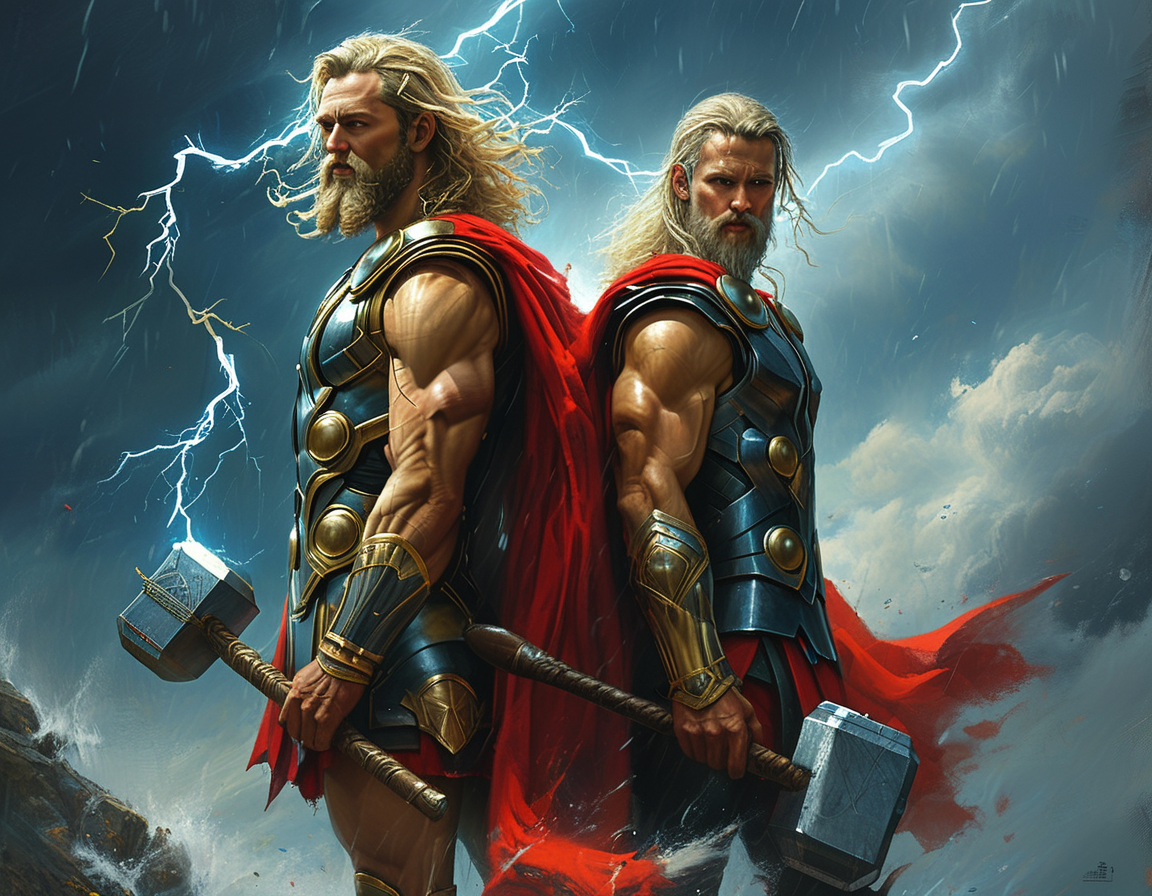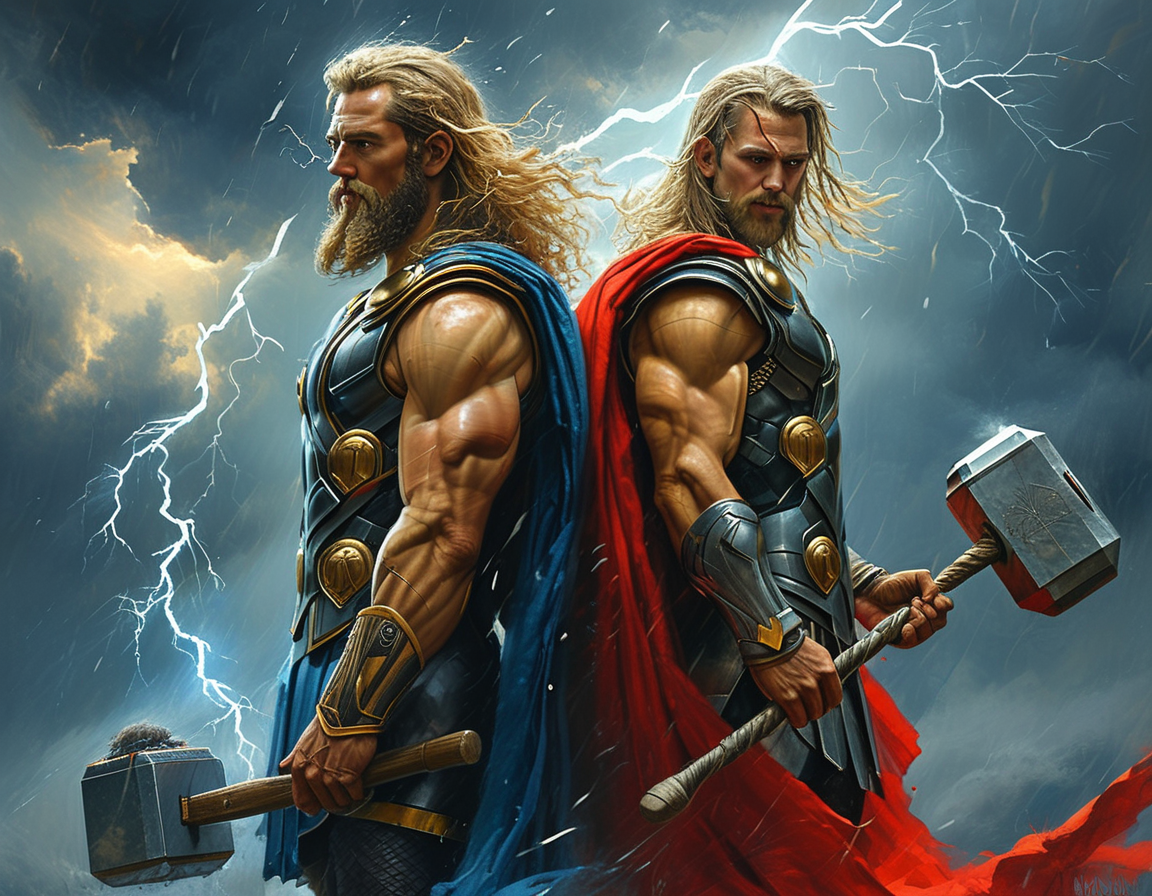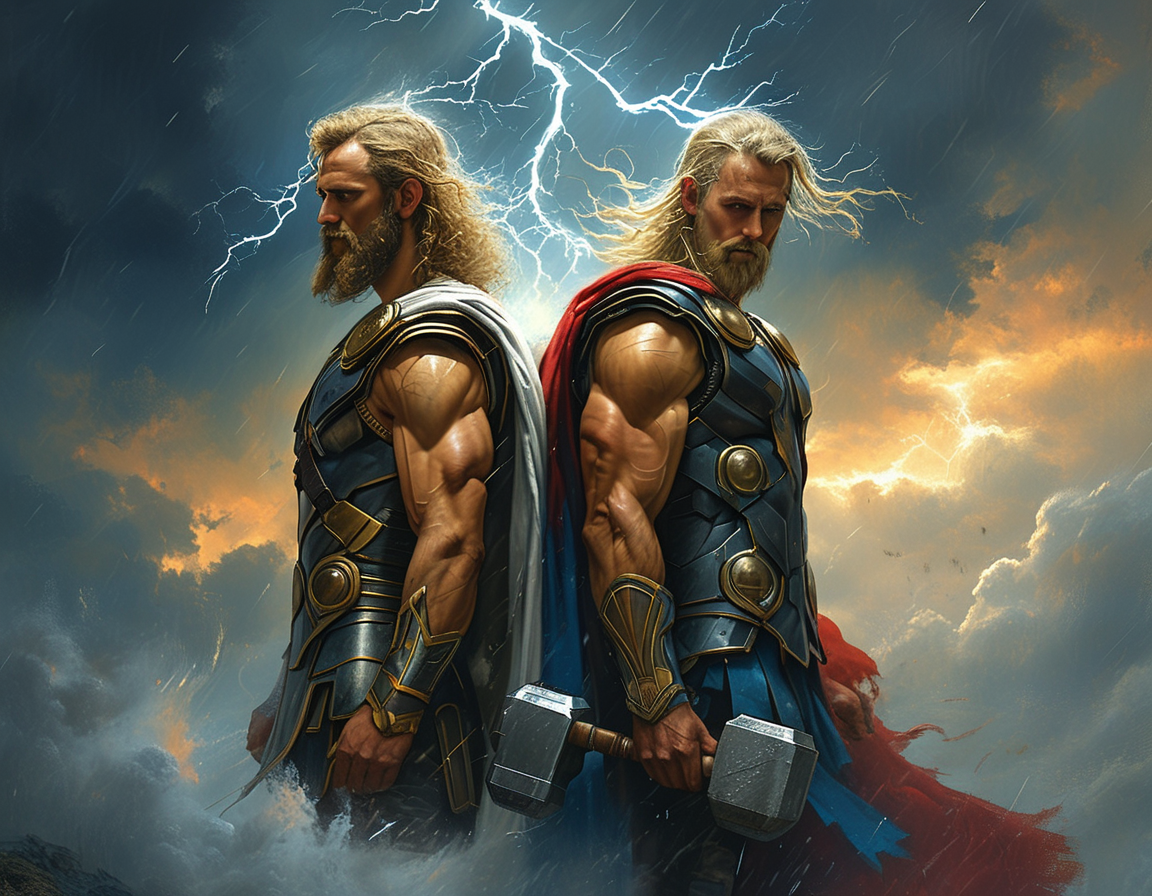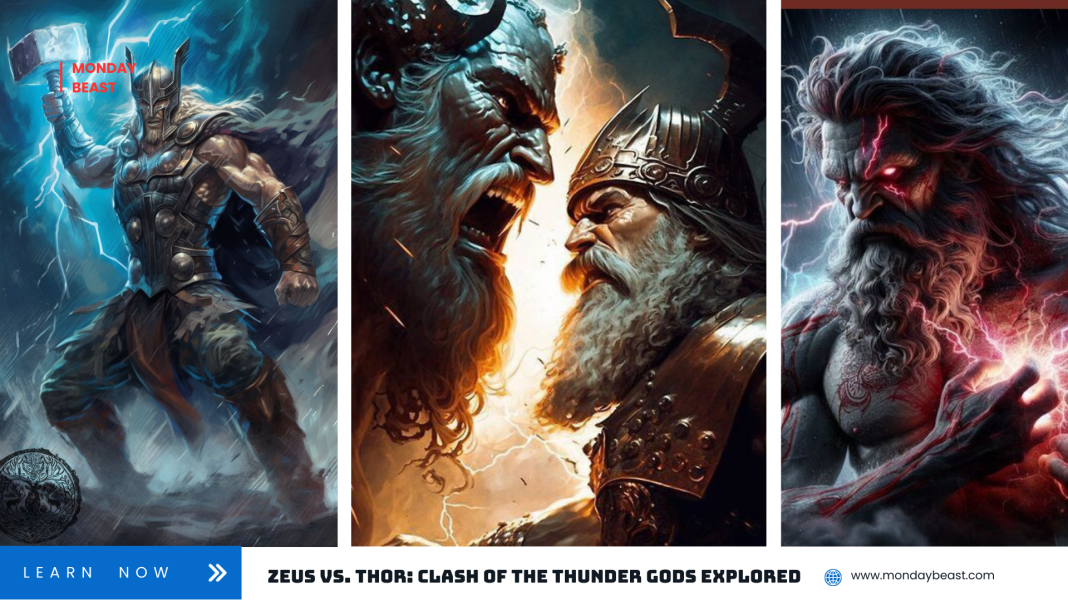Introduction to Thunder Gods
Mythology holds a special place in human history. It tells grand tales of deities that shape our understanding of nature and morality. Enter Zeus and Thor, two titans of thunder, each hailed from distinct cultures. Yet, they share striking similarities. Let’s delve deeper into their stories.
Zeus: The Greek Thunder King
Zeus, the ultimate god of Greek mythology, reigns over Mount Olympus. The all-powerful ruler commands the skies, wielding thunder and lightning with a firm grip. Picture this: a strong, muscular man, cloak billowing, lightning bolt clenched in hand. That’s Zeus, symbolizing authority and control. But there’s more to him than just power.

Born to Cronus and Rhea, Zeus narrowly escaped a grim fate. His father, fearing a prophecy, swallowed his siblings. To save him, Rhea devised a clever plan, hiding Zeus while Cronus consumed a stone instead. This tale echos themes of cunning and survival that resonate across cultures.
Once grown, Zeus overthrew Cronus. In a battle that shook the heavens, he liberated his siblings. This victory secured his place as the supreme deity. He often shares rule with siblings Poseidon and Hades, but we all know who holds the ultimate clout.
Symbols of Zeus’s Power
The thunderbolt is Zeus’s signature weapon. It symbolizes his unmatched strength and commands fear. He can manipulate weather patterns, sending storms to the earth. Think about it—a mere flick of his wrist unleashes chaos. This makes Zeus both respected and feared.

His character, however, isn’t without flaws. Zeus is often described as indulgent. His numerous affairs with mortals and goddesses led to a plethora of offspring. Consider Hercules and Persephone, both legendary figures born from his escapades. These tales of romance often leave us questioning the morality of deities.
Thor: The Norse Warrior God
Then there’s Thor, the Norse god of thunder. Known for his battle prowess, he stands as the protector of both gods and humans. Picture him like this: a bear of a man, vibrant red beard, wielding the mighty Mjölnir, his enchanted hammer.
Thor’s lineage links him to Odin, the chief of the gods. His purpose? Protect Midgard (Earth) at all costs. Unlike Zeus, Thor’s tale is less about ruling and more about defending. He confronts the threats to Asgard with an unwavering spirit. Do we appreciate the valor behind this warrior god?

What truly sets Thor apart is his weapon, Mjölnir. This isn’t an ordinary hammer. It’s said to have the power to crush anything in its path. After striking, it returns to him, almost obediently. Thor embodies courage and loyalty, always ready to fight against the forces of chaos. It’s a testament to the idea of standing tall in adversity, isn’t it?
Symbols of Thor’s Power
Thor’s hammer serves as a dual symbol. On one hand, it represents destruction of enemies. On the other, it embodies protection and hope for his followers. Unlike Zeus, who often brings storms as punishment, Thor uses his power for good. He takes risks, facing giants and beasts alike—all for the sake of others.
However, Thor’s fiery temperament can lead to tumultuous situations. His reactions are often swift, driven by passion. Yet, this added layers to his persona. It shows that even gods can struggle with their nature.
Comparing Zeus and Thor
Both are deities of thunder. Yet, their roles diverge greatly. Zeus, as the king of gods, aligns with authority and governance. He navigates complex relationships, influencing the divine order. Thor, in contrast, is a warrior. He rallies against enemies and stands as a guardian.
The power they wield is immense. Zeus has the element of surprise with his lightning. Thor boasts a relentless spirit driven by his unbreakable bond to his people. While both control weather, their impact on mortals differs significantly.
Zeus enchants with tales of romance and drama. Meanwhile, Thor inspires courage and sacrifice. Which resonance speaks more to us today? Their stories intertwine human flaws, strengths, and aspirations. Reflecting on these, perhaps we see ourselves in them.
Conclusion: A Lasting Legacy
The myths of Zeus and Thor endure through centuries. They are more than mere stories; they reflect our values and fears. As lightning splits the sky, it symbolizes hope, chaos, and power—all conveyed through these divine figures.
In both Zeus and Thor, we discover complex characters. They teach us about authority, responsibility, and courage. Through their tales, we glimpsed the untamed spirit of ancient cultures. Both are timeless reminders of humanity’s quest for understanding in a chaotic universe.
So, what can we learn from these thunderous titans? Perhaps, it’s about the balance of power and protection. As we navigate modern life’s storms, their legacies may hold lessons to guide us. Are we ready to embrace those teachings?




